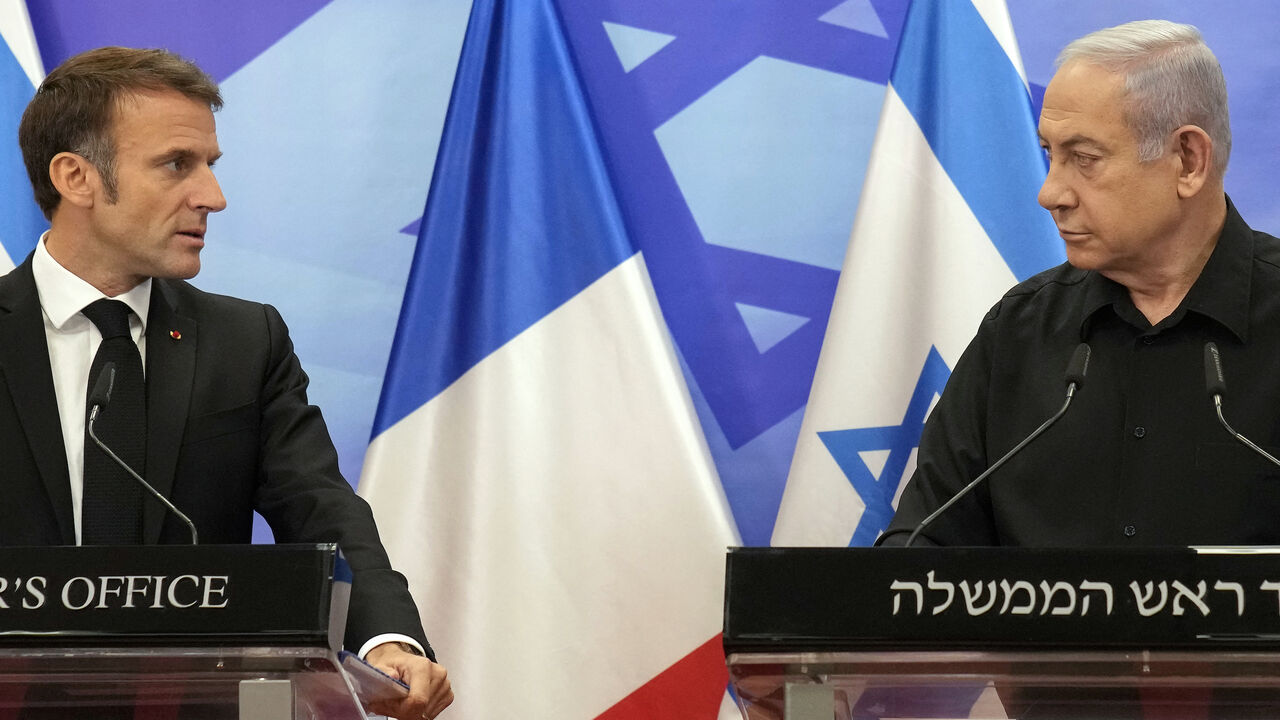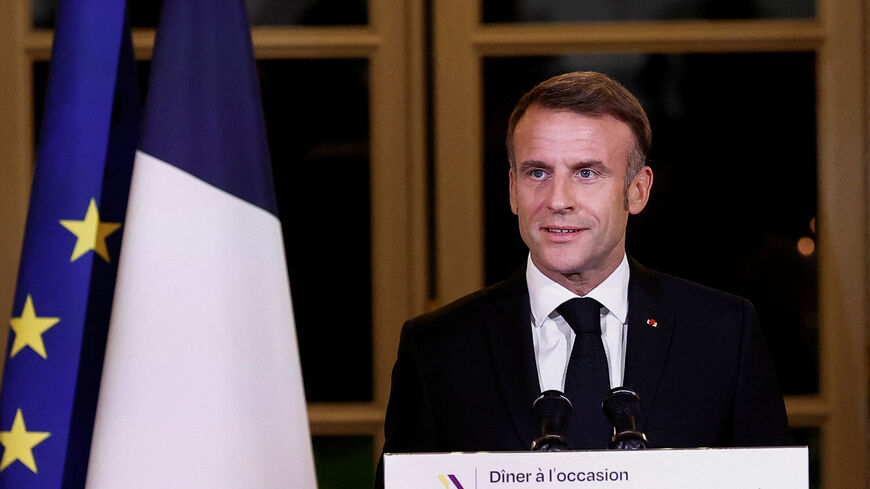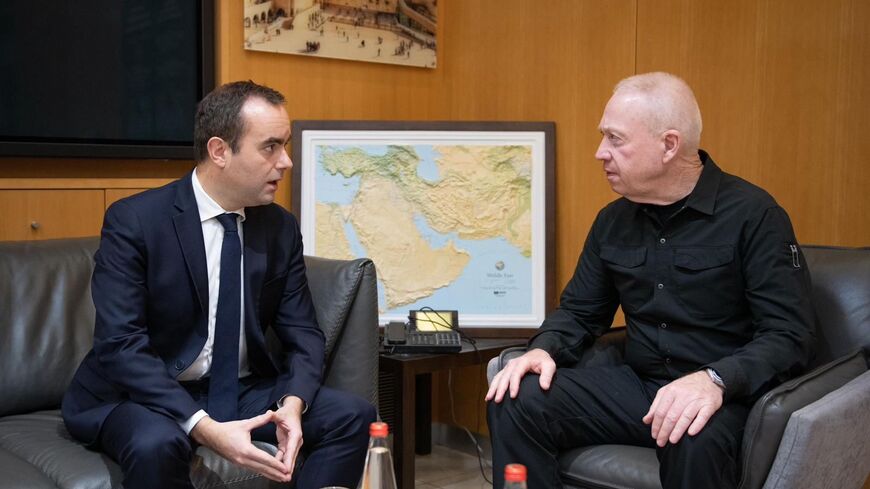Macron warns Netanyahu forced population transfer in Gaza would be war crime
French President Emmanuel Macron reiterated in a phone call with Israeli Prime Minister Benjamin Netanyahu that Paris is against a military operation in Rafah and against any attempt to transfer displaced Gazans.

PARIS — French President Emmanuel Macron told Israeli Prime Minister Benjamin Netanyahu on Sunday that any forced transfer of people from the southern Gaza city of Rafah would constitute "a war crime."
Speaking with Netanyahu on the phone, Macron repeated his "firm objection" to a military operation in Rafah. A statement issued by the Elysee Palace said the French president reiterated his call for an immediate and lasting cease-fire in the Gaza Strip, and "expressed his deepest concern at the operations carried out since Monday by the Israeli army in Al-Shifa hospital complex."
Macron then "recalled that the forced transfer of populations constituted a war crime under international law, and that the future of Gaza could only be played out within the framework of a future Palestinian state and under the responsibility of the Palestinian Authority."
Macron also informed Netanyahu of France's intention to bring to the UN Security Council a draft resolution calling for an immediate and lasting cease-fire and laying the foundations for a lasting political settlement to the conflict.
The statement further noted that the two leaders discussed what Paris called "the unacceptable humanitarian situation in Gaza," and "the absolute urgency of guaranteeing a massive influx of humanitarian aid in the face of the imminent risk of famine and the deprivation of the most essential goods imposed on the Gazan population."
In his conversation with Netanyahu, Macron called on Israel to operate in line with the ruling of the International Court of Justice in The Hague last February, and to open all existing land crossings to the Gaza Strip — including the Karni crossing, with a direct land route from Jordan, and the port of Ashdod — without delay and without conditions.
Israel has not recognized officially that Gaza is facing famine. The Israel Defense Forces coordination unit said last week that since the beginning of the Gaza war, Israel has allowed the entry into the Strip of 17,400 aid trucks, transporting among other things 218,000 tons of food. Still, Israel recognized that large parts of the aid has been looted, either by Hamas or by individuals.
Paris has been toughening its tone against Israel on the issue of a Gaza cease-fire recently, which could be the reason why the office of Netanyahu did not issue its own statement after the telephone call.
In contrast to the growing rift between France and Israel on Gaza, the two countries see eye to eye on the necessity of reaching an agreement for de-escalating tensions on the border of Lebanon. France has been deeply involved in recent months, in efforts to reach an agreement between Israel and Hezbollah.
"We have submitted proposals to both the Lebanese and Israeli governments. They are currently being discussed, and we have had an initial reaction from the Lebanese authorities that we are very pleased with. These discussions are continuing and we are pursuing our efforts at all levels to prevent a regional conflagration that would, once again, be dramatic for Lebanon and for Israel," the French Foreign Ministry told Al-Monitor last Thursday.
The Elysee Sunday statement equally said that the French president "stressed the need to move toward a diplomatic solution and avoid any escalation between Israel and Lebanon — in particular through the full implementation of UN Security Council Resolution 1701. France will continue to convey messages of restraint to regional players, including Iran, to avoid a regional conflagration."






